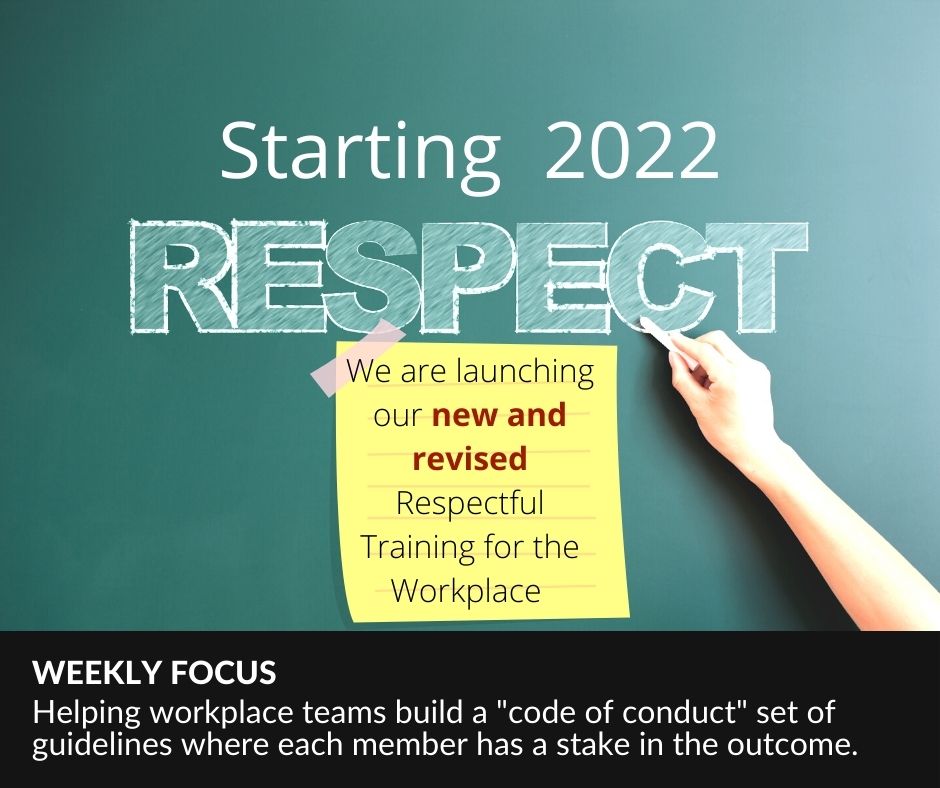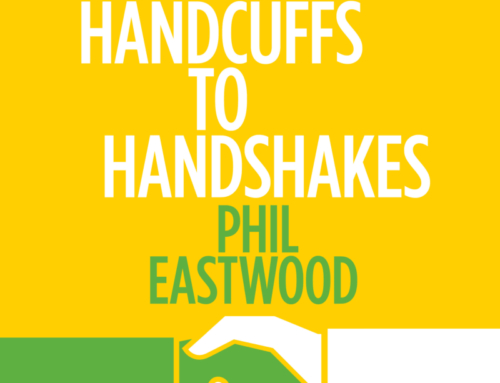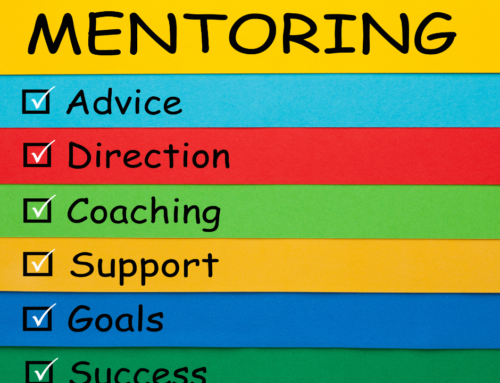What to Expect in the New RESPECT IN THE WORKPLACE Training Sessions in 2022
Fiore Group Trainers have been delivering Respect in the Workplace workshops for the past eight years, and from the feedback from both clients and participants, we continue to have a positive impact.
Students continually comment and pose questions about incivility and how those behaviors negatively affect the team culture. They suggest that some people are deeply concerned, and it reflects in their overall enthusiasm to come to work and give their best effort.
As a result, we have elevated our Respectful Workplace workshop experiences for our direct clients (this does not apply at this time to the BCMSA) to include a healthy dialogue about incivility and team culture. In addition, we have new tools to strengthen team culture.
Don’t Wait for Training Sessions
But whether Fiore Group is involved or not, this is a meaningful conversation to have with your team! We are learning every day from the news the significance of how workplace experience connects with the elements of Psychological Safety.
Let me ask you a question:
Cast your mind back to a situation in a workplace when you were personally affected by incivility (rudeness, racial inequity, bullying, slander, etc.).
Consciously remember what your emotional response was to that incident.
What word comes to mind which would appropriately describe your emotional reaction?
Did you feel:
- furious
- agitated
- scornful
- infuriated
- upset
- hostile
- scared
- worried
- impatient
- sulky
- dejected
- cranky
- down,
- argumentative
- paralyzed
- distressed
- withdrawn
- offended
- lonely
- stern
- glaring
- or any of a hundred more emotional descriptors
Disrespect (incivility) Affects the Best of Us
When we see, hear, or experience incivility, it is normal to be affected somehow.
If we have no emotional attachment to the person being uncivil or to the person directly experiencing it, some of us might feel zero impact. We are not concerned about either party, and therefore we don’t care. Their behavior is like ‘water off a duck’s back.’
However, from our qualitative questioning in our workshops, I know that most people have a different reaction.
The vast majority of people that these instances do upset them. They take it to heart, blame and judge the uncivil person, stew and obsess about it, vent to others, and sometimes even feel tempted to get even. Many have shared that they carry it outside the workplace and talk to others unconnected with your organization.
Think about the additional damage that can be caused to your workplace’s reputation by those responses.
Action is Needed
So, starting next year, we will be very deliberate in elevating the conversation about rude, discourteous, and offensive conduct in the workplace.
We will tackle the topic at every level of an organization and discuss how organizations can discourage and pursue accountability for offensive behavior.
Primarily, we are determined to help those individual employees and front-line supervisors and managers. These people have a legal and moral duty of care to provide a psychologically safe workplace.
New Components Added to the Training
The Broken Windows Theory: a crime prevention philosophy that tells that if we respond to small issues (such as a broken window or graffiti) then we prevent bigger problems down the road
Trusting our Canary: a metaphor for our gut instinct or our intuition, which is usually right
The Good Neighbour Guidelines: doing those things which are considered neighborly with our coworkers in the workplace
The Endowment Effect: we place a higher value (and therefore are much more likely to follow through with things) if we create them ourselves
Word Pictures: creating a personal response code of conduct for ourselves
Visual Literacy: our ability to read, understand and interpret things that we see around us
And I am including what every team, every employee, and every supervisor can learn from Ted Lasso. Yes, I am going there too!
The New Measuring Tool
To encourage workshop participants to think about what civility and incivility look, sound, and feel like, we have crafted a 24-question inquiry form called the Team Respect Measuring Tool.
For the time being, this is an in-house training tool. I am still looking for a virtual instrument that can deliver the experience effectively.
The Team Respect Measuring Tool gets people thinking about the culture of their work teams. Together with the participants, we encourage the group to build what could be their very own code of conduct based on the results of their team measuring tool. This is a group agreed-upon list of behaviors that people expect to see from one another at work. It includes a list of behaviors that they don’t want to see. It is all about managing expectations.
The tool is an individual exercise. We challenge each person to think about how their colleagues behave towards each other in the workplace. I hope for and will encourage a sincere and honest approach from each participant.
It is a warmup stretching exercise before they then go on to create a team WORD Picture, which is that code of conduct that I spoke about previously.
How It Works
We ask people to look at 24 statements. Each of the statements estimates how often they observe people in their team carrying out the described behavior.
A ‘work team’ is defined as those individuals that they work closely with on a daily basis. Even if members of their team change regularly, we ask that try to estimate how often they see the behavior.
There is a scale required for each statement. 1. Hardly ever 2. Seldom 3. Sometimes 4. Often 5. Very Often
We divide the Team Respect Measuring Tool into two distinct sections.
The first 12 questions focus on respectful behaviors, the last twelve on just the opposite in behavior.
To give you an idea of a few possible statements, here are some samples:
- They show they are open to another person’s ideas, even if they are quite different from their own.
- They quickly forgive another who they feel has wronged them.
- They carry a grudge long after a situation should have been resolved.
- They interrupt when a colleague is speaking.
Can you figure out from the samples which are respectful and disrespectful behaviors? Of course, you can! It’s easy to do when you are not the one involved at the moment. Things get cloudy when you are a participant. We want to bring light to it, define it, and help your staff or yourself become far more aware of it even when it is happening to you. Once we are aware, we can respond accordingly.
There is more to the tool, but the idea is to create a mindset, and a conversation, about the types of behaviors that team members experience. Students are then challenged to develop a personal accountability resource, such as a Word Picture, for the future.
I Am Excited to Introduce the Enhanced Approach
Having heard hundreds of stories, I felt I needed to act. The waters get murky, and people lose their compass when their emotions run high. With our enhanced training, I believe we will positively impact workplace cultures across the province, in Canada, and beyond.
But you know me. I am also a realist.
I understand that not even the most gifted, professional facilitator can make a thirsty horse drink from a giant bucket of water presented to them.
For one thing, the horse may not think or know that it is thirsty.
And that is where our other tools and lessons come in.
For six years in my policing career, I was a Professional Standards Officer.
During that time in supervisory and leadership roles, I found myself sometimes dealing with horses (people really) that did not know or think they were thirsty.
We Would Be Happy Provide Your Training – But You Don’t Need Us To Start
So again, whether Fiore Group is involved, please recognize that this is an essential conversation with your team. We need to consider how we show up and treat our colleagues.
We are learning more every day about our work experience connects with the elements of Psychological Safety.
The time to elevate your workplace experience and culture is now.






